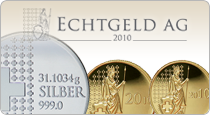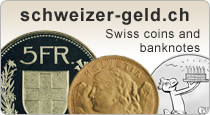
Third Daily Bell Interview
The Daily Bell is pleased to present this exclusive interview with Antal Fekete.
Author: Prof. Antal E. Fekete
Daily Bell: Please share with us your criticism of the idea that fractional reserve banking is a crime, as Murray Rothbard once held.
Antal Fekete: This is a major departure of Rothbard and, before him, of Mises, from Carl Menger’s monetary theory. Menger held that commercial banks, quite properly, make more loans than their net gold reserves would on the face of it justify. The excess is balanced by gold bills, that is, bills of exchange maturing daily in gold coins. You can look it up in Menger’s Geld, third edition (1909). Mises published his Theory of Money and Credit just three years later, in 1912 (we do know that he wrote the manuscript in 1911). He must have read Menger’s Geld before his book went to press. It is totally incomprehensible to me why Mises fails to refer to Menger’s analysis of the commercial banks’ practice of monetizing gold bills. Or why he did not criticize it if he disagreed. Be that as it may, “fractional banking” is a malicious misnomer. The commercial banks’ reserves are not “fractional”. They are full because their portfolio of maturing gold bills is as good as gold. The same is true of central bank reserves.
Daily Bell: You're a proponent of real bills. Can you remind us of why Misesian Austrians like Rothbard dismissed real bills as inflationary?
Antal Fekete: They call the monetization of gold bills fraud for the silliest of reasons. They hold that bank notes are fake warehouse receipts. They do not understand that bank notes are not warehouse receipts at all: they circulate as proxies of gold bills that are also capable of monetary circulation themselves. Bank notes are more convenient, and have a higher name-recognition. Post-Mises Austrians hold that issuing bank notes is fraudulent. It is inflationary – they say – as it increases the money supply. What they fail to see is that gold bills rise and expire together with new consumer merchandise maturing from the state of a semi-finished good into a finished good, before it disappears in consumption. The gold coins surrendered by the consumer liquidate all claims that have arisen along the passage of semi-finished goods from the producers of higher order goods to those of lower-order goods. Rothbard would have the producer of lower order goods pay the producer of higher order goods in gold coins. But this is absurd! No producer has ever paid a single gold coin for a semi-finished good, never ever! Payments in gold coin are made exclusively for finished goods, and that by the consumer, not by the producer! Producers of higher order goods get paid for their semi-finished goods by drawing bills on the producer of lower-order good, and that’s that.




